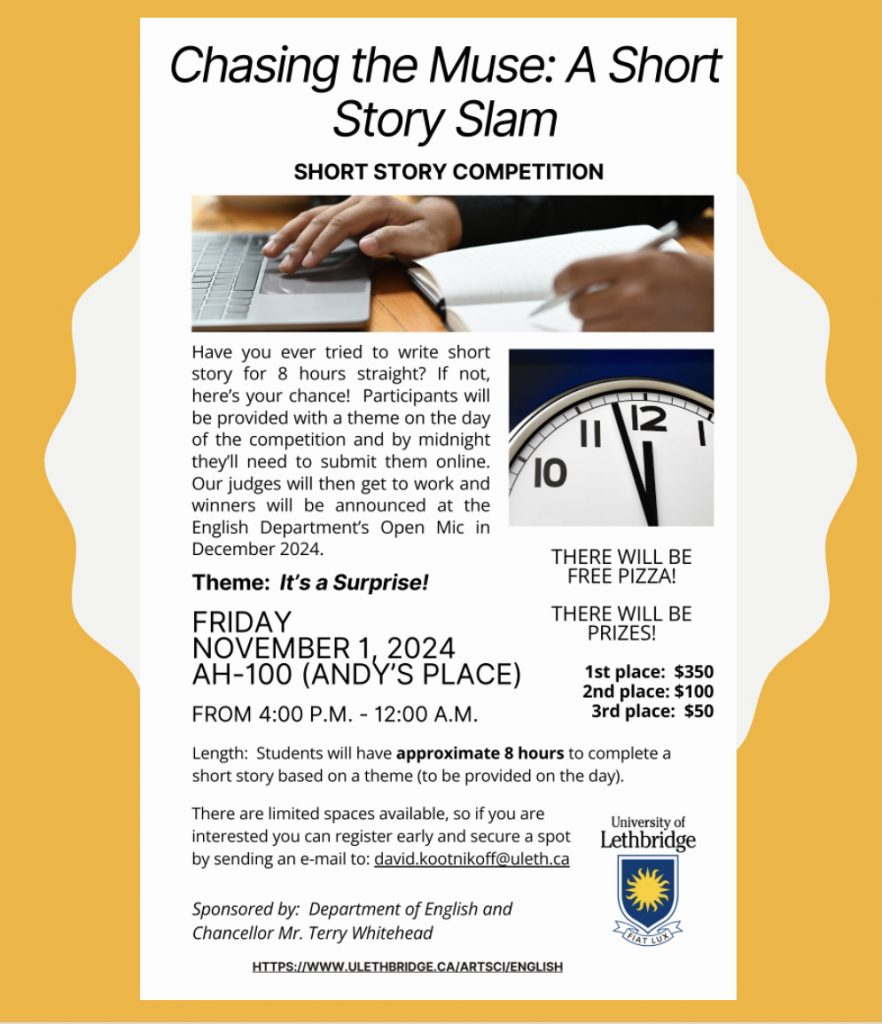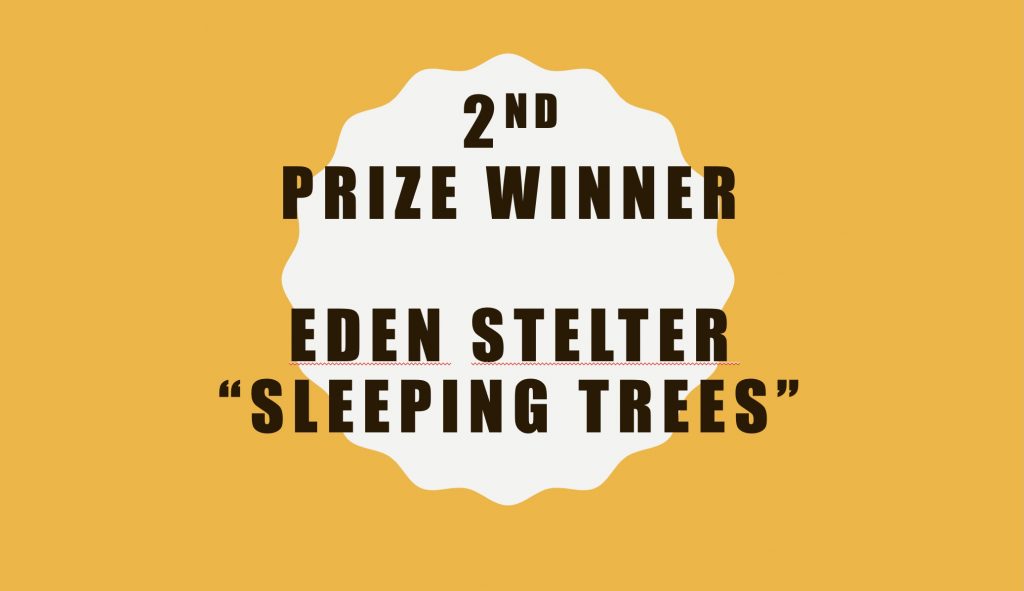

Lewis had the distinct privilege of loving his grandfather and of living rather close to his creaky square house perched upon the rim of the river valley: a faithful, weathered sentinel of a house. The south windows surveyed an ancient, abandoned coal mine complete with skeletal structures, a brick warehouse, and antiquated rubble all securely sleeping beneath a rusted warning against trespassing. This was soldered to an equally rusted coil of barbed wire. Such an austere, yet alluring pit of mysteries was gently juxtaposed with the fluid, liquid form of the rolling river valley walls. The east windows of the little square house peered down the valley and its wrinkled coulees that tumbled down the carved sides to meet the slow river and its thick coat of wild poplars. While these trees did not whisper in the ghostly tones of the forbidden unknown as the mine did, they seemed to sing of all that was warm and familiar, of roots and sap and shade and seasons. In the spring the wild poplars would bourgeon with the chartreuse haze of newborn verdure, maturing with the months into pillars of peridot and sunlit emerald until the autumn sun would softly kiss them into a buttery, golden blush. By the time the frosts could coerce the first snow to fall, the river’s woods were left as skeletal testaments of steady patience as their roots held them fast to the frozen earth and their sap slept alongside the river. Lewis’s grandfather spoke of these trees as if they were old friends and never shut the curtains on the east-facing windows. Lewis looked out one such window that evening as he picked popcorn shells out of his gums and his grandfather adjusted the radio. The trees were blurred in evening shadow and heavy snow clouds hung low.
“What are you going to listen to tonight, Papa?” Lewis asked. He only ever addressed his grandfather as Papa, he always had. His sisters all subscribed to the ubiquitous appellation of Grandpa, but never Lewis. He was the only grandson that his Papa had and so he had a special name and a special bond with the white-haired man. Lewis took any possible opportunity to steal away to his Papa’s house for quiet sleepovers: no sisters allowed.
“It’s jazz tonight, Lewis, if I can find it in this wind,” Papa said. Oh, Papa’s voice was Lewis’s favourite sound. It was earthy and worn, like a deeply rutted country backroad, perfect for telling stories. He had been a radio announcer before Lewis was born and still lent his ear to the sweet waves every night out of respect for the beloved art. He fiddled with the tuning needle a moment longer before surrendering to the persistent static and switching the radio off.
“The wind is too strong tonight,” he straightened up and took his seat beside Lewis at the table strewn with jigsaw pieces, one thousand fragments of the solar system drawn to scale. “Looks like we’ll be getting some snow too and about time! Winter’s not as cruel as she used to be.”
The snow came and much faster than Papa could have predicted. The wind had worked itself into a frantic squall, throwing the snow clouds into a panic and whipping the prairie sky into a white fury. Great gusts sang soulfully through the bones of the abandoned mine and Papa’s yellow lamps flickered and threatened to faint.
“It’s like a battle out there,” Lewis’s eight-year-old frame shivered as the eastern windows revealed empty darkness smeared with furious white streaks of whirling snow.
“A battle most certainly, Lewis!” Papa glanced out the eastern window and shivered too.
“I hate that mine. The wind makes it moan as if it were full of dead things.”
“You hate the mine? But Lewis, the mine is empty, it has no dead things and no living things within it. It is an old shell. The real living things are the trees in the valley. We cannot hear them groan because they stand at the bottom of the valley and we’re up here at the top, but if we were in their midst we would hear them creak and the wind would shriek through their bare branches.” Papa did not seem to find this to be a disturbing thought. Lewis did.
“But its winter; the trees are dead. That means the valley is full of dead things!” The wind’s worried whining was contagious. His eyes were wide.
Papa looked up from the puzzle, his hedge-like brows furrowed on a collision course.
“No, Lewis, please don’t call my dear trees dead. They are not dead; they are only sleeping and when they wake they will wear their living crowns of splendor. They are not dead.” He shook his head, speaking now more to himself. As he spoke the last word a resonant crack split the soft, warm air within the little square house that stood in bright defiance to the wailing tumult without. Like water on a match, the lights were extinguished, and the mine’s dirge flew down the brick chimney and engulfed their senses.
Lewis stifled a cry. A big hand with soft leathery skin quickly found his small trembling one and drew him close. Without ever letting go and without a word, Papa lit three candles and then lit a little fire in the clean, brick fireplace. They gathered pillows and blankets, drew the two armchairs close to the fire, and each made his little nest in the ruddy flickering light as the trees slept and the mine howled.
“Papa, what now?” Asked a weary, wary voice from the blanketed mass on the left.
“Ah Lewis, I think that tonight is a night for a story.” Papa did not sound a bit afraid.
“Stories and snowstorms? It doesn’t seem right.” Lewis was still bewildered and could not shake the substanceless, sinister fear that they were in danger of being blown out of existence, only remaining as empty shells that wept and wailed too in the wind like mine.
“Oh yes!” Papa sounded almost too pleased. “Did you know that wintertime is traditionally the season of stories for the first people who lived by this valley? With thickly falling snow, long, dark nights, and winds that keep you up late into the night, the best way to fill the time is with stories.”
“Well, I don’t know any stories, Papa.”
“I’m sure you know more than you think you do, but don’t worry, Lewis. I will tell the story.”
“Please no howling, dead-thing stories, Papa.” His voice was strained and tight.
“I will tell you about my friends the trees in the valley, the trees who are only sleeping, remember. Have you ever wondered why almost all of the trees here live in the valley and not on the prairies? It seems a little cramped, a little crowded in the valley, but I assure you, they would rather be there than in the meadows and fields. They used to live there on the prairies, but they had to leave.”
Papa spoke and his rutted, gravel road voice wound a path through the feral darkness to what felt like home for Lewis’s heart. Lewis’s breath caught as he sighed and surrendered to the oasis of his Papa’s words, his wide, round eyes fixed on the gentle ones snug in the creases of long past days of joy and glinting in the pirouetting candlelight.
“Once all the trees dwelt in the prairies with the long grasses, the groundhogs, and the burrowing owls. They were the greenest living things to ever call the prairies home and the birds made nests in their boughs and deer slept in their shade. But these trees were different, they were short, skinny, and twisted their trunks and boughs like clumps of forgotten wire. They wanted to be happy, they wanted to be at home, truly they did. But they had two terrible problems.
“Their first problem was that all the best water was far off in the bottom of the river valley. Because the water was so far, they had to stay low, low down in order to soak up the few droplets of water deep in the soil with their roots. This was why they were so terribly twisted and thin.
“Their second problem was they could not grow tall like they wanted to. You see, normally, trees grow tall because they are reaching up, up to the sun, lifting their leaves towards it so that they may turn the sunlight into sweetness. But in the prairies, the sun and the moon both come to dance across the fields and grasslands and meadows; the prairies are their golden, vaulted ballroom. With the sun dancing right there on top of them, the trees could not grow tall and stretch their branches. If they tried, their leaves would toast and fall to the ground, even on the softest of spring days.
“They tried asking the sun and the moon to go dance anywhere else, but the sun and moon could not hear the trees with their faces so close to the ground. And there was nowhere better for the sun and moon dance, no there was nowhere quite as soft and golden and steady as the prairies. Lewis, I am sure you have seen how the sun and moon still dance on the prairies.”
Lewis shook his head. “I have never seen the sun and moon dancing together.”
“Ah, that is because they only have two moments in a day to dance together. They are short moments that are easy to miss if you are not looking for them. You see, Lewis, the sun and the moon are caught in the current of the heavens, like ducks floating on a river. Around and around they go, taking turns dancing on the prairies; the moon dancing all through the night under the stars, and the sun dancing all day long. The only
times that they dance together is in the blue and yellow blur as the moon sets in the morning and the orange and purple shadows as the sun sets in the evening. For a blessed, twilit moment they are cheek to cheek, dearly close and they dance until the sweeping current tears them apart. Oh, how they dance with impatience, waiting until they may swirl together across the green and golden fields for one moment more…” Papa’s voice drifted, rather suddenly caught in the celestial current, dancing through the twilit moment and toward the horizon.
“But what about the trees, Papa?” said Lewis, betraying a hint of impatience.
“Oh, well now, yes,” Papa sighed and cleared his throat anew, the dance dissolving into the wintry darkness.
“The trees were so weary, Lewis, and they began to realize that if they stayed in the glorious grasslands they would either sink into the earth with their roots or simply be trampled by the dancing lights of the sky who could not hear their pleas. The poor, tired trees were losing hope!
“One winter’s night, the trees stirred from their winter sleep, one and all, and gathered to an arboreal counsel to decide what they could possibly do to shelter themselves from the tireless dancing above them and at last grow tall and straight. But that very night, a storm, such as the very storm we have tonight, joined the dance and kicked up so much snow that the moon could not see the congregation of trees huddled tightly right below her. She tripped terribly over the trees, tumbled – not so gracefully, might I add – and chipped her smooth, white cheeks mountains in the west. When the sun rose to dance with his moon for the beautiful, brief moment, he was enflamed with rage to see the grey craters covering her silver face. ‘Who did this evil thing to you, dear one?’ he asked. “Oh the trees, the treacherous trees! I took them to be sleeping, for they always sleep in the snow, but they tricked me and trapped me to trip while the wind whirled the snow to hide them.’ And just then their twilit moment ended, and the sun was once again alone to dance upon the prairies. But this time he danced with angry vengeance, stepping especially upon the despairing trees with his scorching, spiked feet.
“In a last, desperate attempt to live, the trees gathered up their roots and ran. They ran and ran until they tumbled down the coulees and into the river valley. They waited, holding their misty breath, not daring to go back to sleep until they could be sure of their safety. The moon returned, still cracked and tear-stained but smiling again to be spinning alongside her sun for their momentary duet. She daintily stepped right over the river valley and danced as she always did upon the smooth snow of the prairies. The trees waited. The sun returned, still outraged but cooler and strode across the river valley to take his moon in his arms. They both glided like figure skaters across the fields without a tree in sight. The trees eased, breathed deeply and buried their roots. They were so very weary after their great escape that they slept until the snow melted and the mud dried, and the river valley rushed with mountain runoff. In fact, it was the sound of the jubilant river gushing beside them that woke them.
“Water! At last, the trees could rest their roots in the sweet assurance of abundant water. And to their sweet surprise, the trees found that the sunlight for which they hungered was much further away. They stretched out their stiff knots and crooked trunks, lifting their round leaves skyward to catch the sunlit sweetness they craved. Never had they been so tall! Never had they been so strong! Never would they all return to the prairies where they would face nothing but the sun’s wrath and the moon’s blame. And that is why, dear Lewis– ”
The small bundle of blankets breathed steadily and heavily, having ridden the winding voice through the dark squall to peace.
“Well now, little Lewis, you’ve missed the end of my story,” Papa disinterred himself from his own nest of blankets, chuckling quietly as he fed the fire and made sure the boy was tucked snuggly.
Lewis was roused from his rest as the living room was flooded with the yellow light of Papa’s lamps. The fire was no more than a smoldering heap in the clean brick fireplace and there was a beard of frost crusted on the blankets where his nose had been. The furnace gently whirred back to life as the power returned to the house, startling Papa. Without a word, the gentleman woke up, looked outside, and saw footprints in the snow, all fresh and storm-settled. A deer had crossed the yard in the calm now that the wind had worn itself out and clouds had emptied their frosty load. In fact, the sky was quite clear and the air was downy and dry with the silence after snowfall; the light was a blue and yellow blur.
Lewis crept to his Papa’s side in front of the biggest eastern window in that little square house.
“The trees really are sleeping. They are all heaped with soft snow, tall and quiet there in the valley, just like you said.”
“Ah, so you did hear the end of my story, it seems,” Papa chuckled.
“The sun is rising,” Lewis whispered, his breath fogging the pane. “Look, he is coming to dance with the moon. This is one of those beautiful, brief moments, isn’t it, Papa?”
Papa smiled and placed his big hand on the little shoulder, “Yes, yes this is, Lewis

